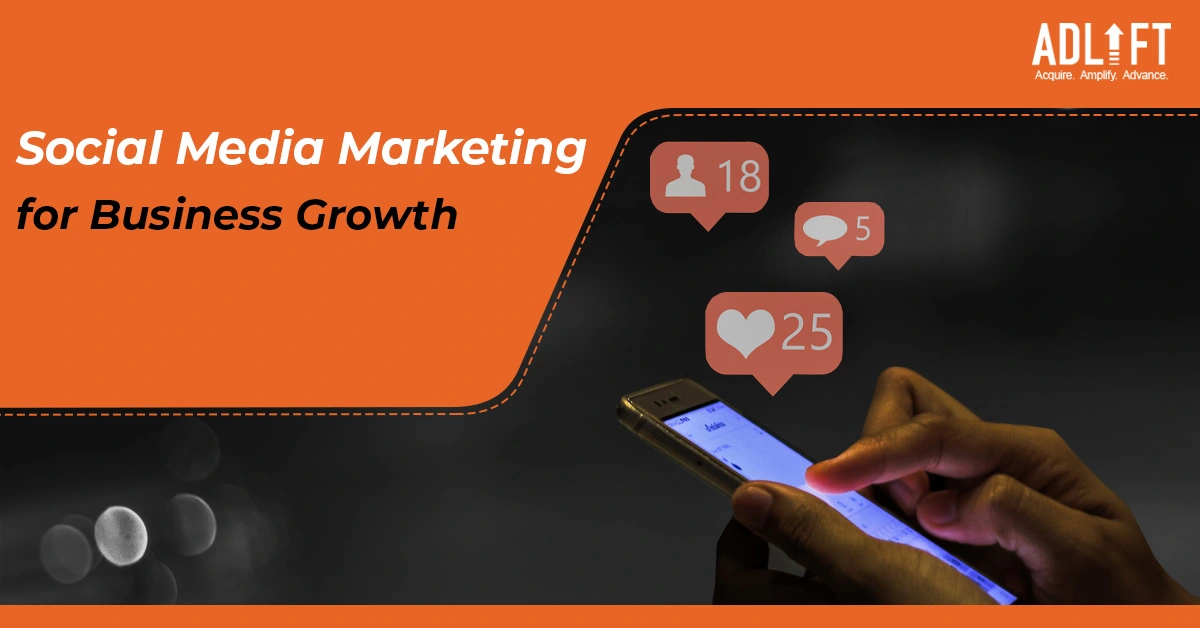Exploring Different Types of Social Media Marketing for Business Growth

The ubiquity of social media platforms has catalyzed a fundamental shift in marketing strategies. Social media marketing has become an indispensable component of any successful business’s promotional tactics. Through social media platforms, businesses can effectively engage with their target audience with greater efficiency than ever before. Social media marketing is multifaceted, empowering businesses to augment their brand awareness, extend their reach, and create enduring customer relationships. In this article, we will endeavor to illuminate the various forms of social media marketing that businesses can harness to expand their commercial enterprises.
Understanding What is Social Media Marketing
Social media marketing refers to the method of utilizing social media platforms to endorse a product, service, or brand. The primary objectives of social media marketing are to amplify brand awareness, generate website traffic, and ultimately, enhance sales. Due to its cost-effectiveness and efficacy, social media marketing is swiftly gaining traction among businesses of all sizes.
Social media marketing is an indispensable tool for business growth since it facilitates businesses to connect with a broader audience and cultivate a devoted customer base. Through social media marketing, businesses can respond to customer feedback in real time and provide unparalleled customer service.
In this article, we will explore the different types of social media marketing that businesses can use to grow their business. We will discuss the benefits and drawbacks of each type of social media marketing, and provide tips on how to choose the right strategy for your business.
Types of Social Media Marketing
Organic Social Media Marketing
Organic social media marketing is the process of using free social media platforms to promote a product, service, or brand. Organic social media marketing involves creating and sharing content on social media platforms such as Facebook, Twitter, and Instagram.
Organic social media marketing allows businesses to engage with their customers and build brand awareness without spending money on advertising. The benefits of organic social media marketing include increased brand awareness, increased website traffic, and improved search engine rankings.
However, organic social media marketing has its drawbacks. The reach of organic social media posts is limited, and businesses need to consistently create and share high-quality content to keep their audience engaged.
Paid Social Media Marketing
Paid social media marketing is the process of using paid advertising to promote a product, service, or brand on social media platforms. Paid social media marketing involves creating and running ads on social media platforms such as Facebook, Twitter, and Instagram.
Paid social media marketing allows businesses to reach a wider audience and target their ads to specific demographics, interests, and behaviors. The benefits of paid social media marketing include increased reach, improved targeting, and faster results.
However, paid social media marketing can be expensive, and businesses need to have a well-defined strategy to ensure a positive return on investment (ROI).
Influencer Marketing
Influencer marketing is the process of partnering with social media influencers to promote a product, service, or brand. Influencer marketing involves identifying influencers in your industry or niche, building a relationship with them, and collaborating on content that promotes your business.
Influencer marketing allows businesses to reach a highly engaged and targeted audience, as influencers have built a loyal following based on their expertise, personality, or style. The benefits of influencer marketing include increased reach, improved credibility, and higher engagement.
However, influencer marketing can be expensive, and businesses need to carefully select the right influencers and ensure that the content aligns with their brand values and messaging.
How to Choose the Right Social Media Marketing Strategy for Your Business
Choosing the right social media marketing strategy for your business requires careful consideration of your goals, target audience, budget, and resources.
First, define your goals and target audience. What do you want to achieve with social media marketing? Who are your ideal customers? What social media platforms do they use?
Second, analyze your budget and resources. How much can you spend on social media marketing? Do you have the expertise and time to create and manage social media campaigns?
Third, research your competitors and industry trends. What social media marketing strategies are your competitors using? What are the latest trends and best practices in your industry?
Finally, consider the strengths and limitations of each type of social media marketing. Which strategy aligns best with your goals, target audience, budget, and resources?
Best Practices for Social Media Marketing
To maximize the effectiveness of your social media marketing campaigns, follow these best practices:
- Consistency and frequency: Consistently post high-quality content and engage with your audience regularly to keep them engaged and interested.
- Quality content and visuals: Create compelling and visually appealing content that aligns with your brand values and messaging.
- Engagement and interaction: Respond to comments, messages, and feedback in a timely and personalized manner to build trust and loyalty with your audience.
- Tracking and analyzing metrics: Use analytics tools to track and analyze the performance of your social media campaigns and adjust your strategy accordingly.
In conclusion, social media marketing is a powerful tool for business growth that allows businesses to connect with their customers, build brand awareness, and increase their reach. There are different types of social media marketing, including organic social media marketing, paid social media marketing, and influencer marketing, each with its benefits and drawbacks.
To choose the right social media marketing strategy for your business, define your goals and target audience, analyze your budget and resources, research your competitors and industry trends, and consider the strengths and limitations of each type of social media marketing.
To maximize the effectiveness of your social media marketing campaigns, follow best practices such as consistency and frequency, quality content and visuals, engagement and interaction, and tracking and analyzing metrics.

